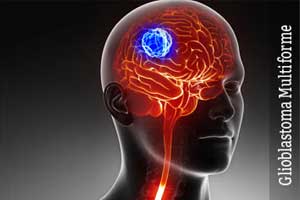- Home
- Editorial
- News
- Practice Guidelines
- Anesthesiology Guidelines
- Cancer Guidelines
- Cardiac Sciences Guidelines
- Critical Care Guidelines
- Dentistry Guidelines
- Dermatology Guidelines
- Diabetes and Endo Guidelines
- Diagnostics Guidelines
- ENT Guidelines
- Featured Practice Guidelines
- Gastroenterology Guidelines
- Geriatrics Guidelines
- Medicine Guidelines
- Nephrology Guidelines
- Neurosciences Guidelines
- Obs and Gynae Guidelines
- Ophthalmology Guidelines
- Orthopaedics Guidelines
- Paediatrics Guidelines
- Psychiatry Guidelines
- Pulmonology Guidelines
- Radiology Guidelines
- Surgery Guidelines
- Urology Guidelines
Acetazolamide may also benefit patients of Glioblastoma

Acetazolamide (ACZ) -- a drug used for the treatment of altitude sickness, seizures, heart failure, epilepsy, and glaucoma -- may also benefit patients with a fast-growing brain tumor known as glioblastoma (GBM), finds a new study published in the journal Science Translational Medicine.
Bakhtiar Yamini, professor of neurosurgery at the University of Chicago Medicine, and colleagues conducted the study to examine the role of high B cell CLL/lymphoma 3 (BCL-3) in the response of glioma to alkylating chemotherapy and to evaluate the use of ACZ as a chemosensitizer in experimental glioblastoma.
Acetazolamide, sold under the trade name Diamox, is "cheap to make, easy to take and has limited side effects.
The most frequently used chemotherapy for gliomas is a drug called temozolomide (TMZ). However, not all patients respond to this drug. Median survival with this disease is about 14 months. TMZ acts by damaging DNA in ways that can kill tumor cells. But some tumor cells are able to block or repair this type of DNA damage. This limits the drug's impact.
Key Findings:
- Most glioma patients with high levels of a protein called BCL-3 were unresponsive to the beneficial effects of TMZ. BCL-3 shields cancer cells from TMZ damage by activating a protective enzyme known as carbonic anhydrase II.
- Acetazolamide, however, is a carbonic anhydrase inhibitor. It can restore TMZ's ability to kill tumor cells. Adding acetazolamide to TMZ enabled mice with gliomas to survive longer.
"We tested this combination treatment strategy (ACZ) in several animal models," Yamini said. It cured some of them. Others had a 30 to 40 percent increase in survival time.
Read Also: New treatment for Glioblastoma multiforme
When Yamini and colleagues looked at BCL-3 level from previous human studies, they found that patients with lower levels of BCL-3 who were treated with TMZ survived longer than patients who had high levels of this biomarker.
"An important feature of predictors like BCL-3 is that they are informative," the authors note. "They can identify pathways to improve treatment response." By examining those pathways, the authors identified carbonic anhydrase inhibitors, such as acetazolamide, as a way to reduce resistance to temozolomide.
"Our data," they note, demonstrate that it is the "induction of CAII by TMZ that is important in modulating response to therapy."
Validating the use of BCL-3 to predict which patients will benefit from the use of temozolomide will require verification in a prospective randomized clinical trial, the authors note. They also suggest that repurposing acetazolamide along with temozolamide might be particularly effective in a subgroup of appropriate patients with tumors that have high BCL-3 expression.
"BCL-3 might be a useful indicator of glioma response to alkylating chemotherapy and that acetazolamide might be repurposed as a chemosensitizer for treating TMZ-resistant gliomas," concluded the authors.
For further information follow the link: 10.1126/scitranslmed.aar2238

Disclaimer: This site is primarily intended for healthcare professionals. Any content/information on this website does not replace the advice of medical and/or health professionals and should not be construed as medical/diagnostic advice/endorsement or prescription. Use of this site is subject to our terms of use, privacy policy, advertisement policy. © 2020 Minerva Medical Treatment Pvt Ltd